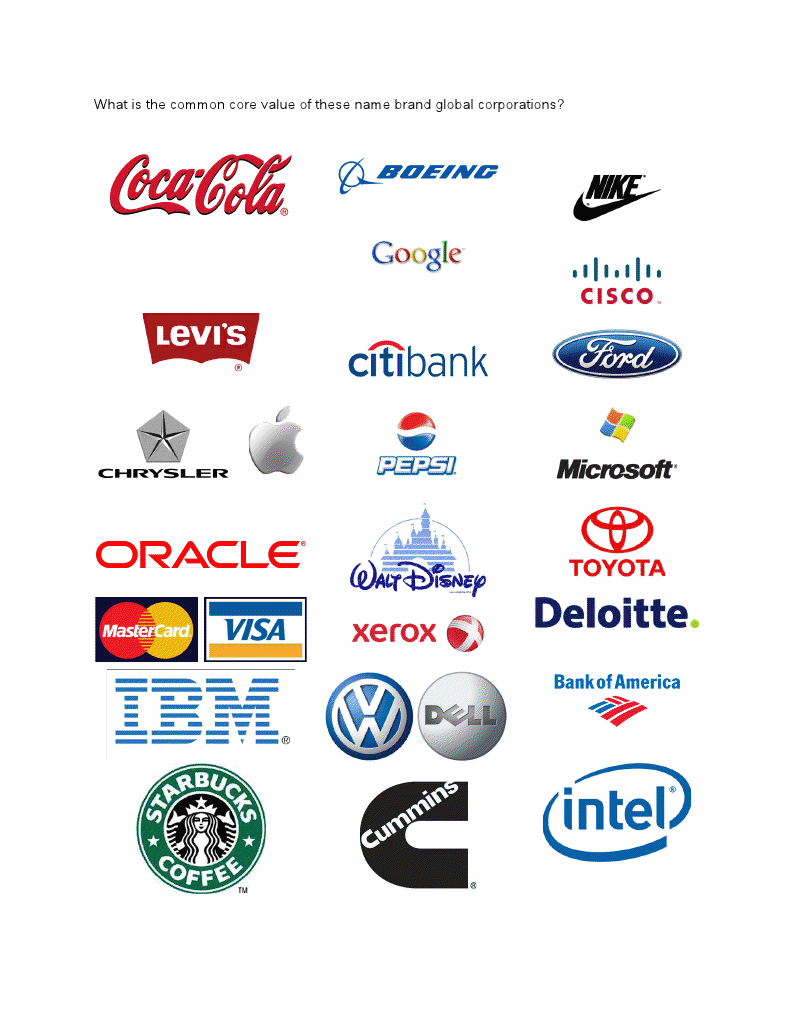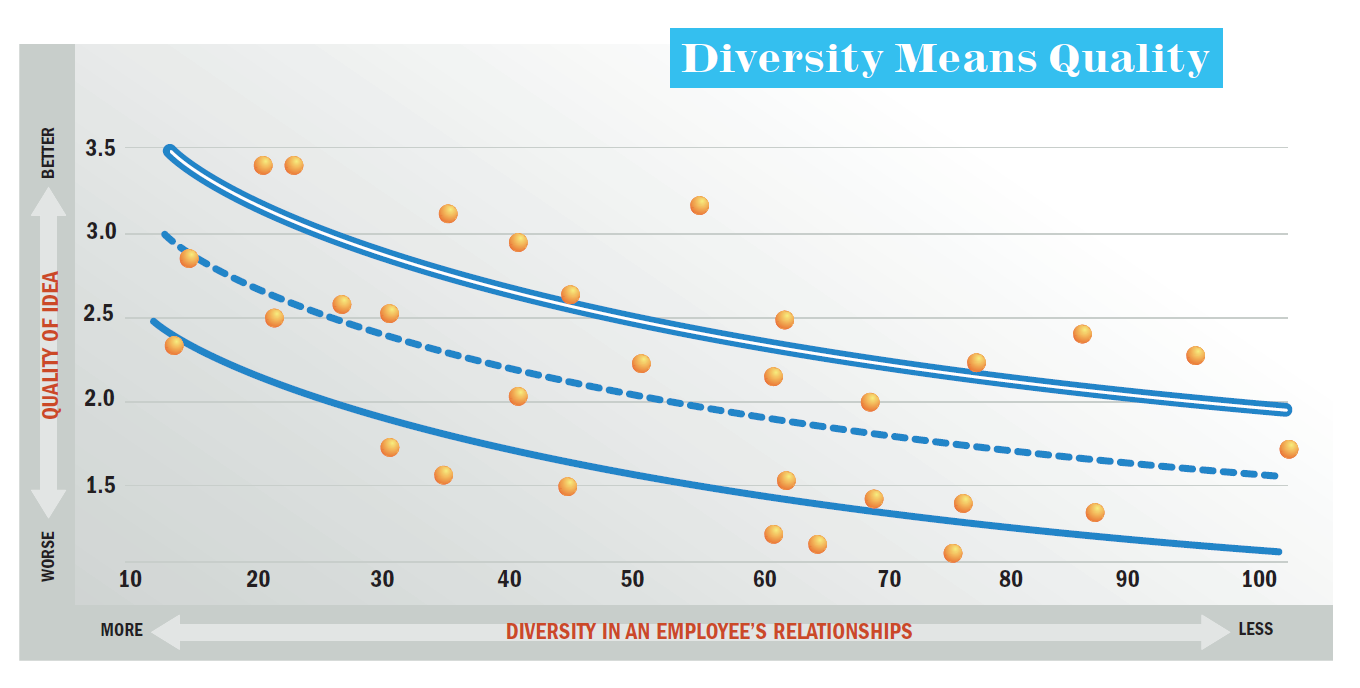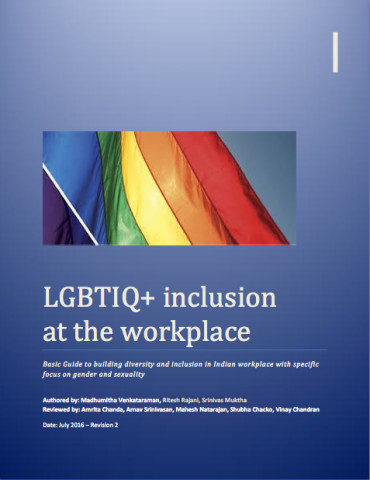Business Case for LGBT Inclusive Diversity
What is the common core value of these name brand global corporations?
 Also, check out: Top 10 companies for LGBT employees
Also, check out: Top 10 companies for LGBT employees
These and several other Fortune 500 corporations all value diversity. In fact diversity is one of their key core values. All the above corporations (and more around the world) include sexual orientation and gender identity/expression as part of their non discrimination policy and all have advocated for greater recognition and celebration of all their employees that includes their LGBT ones.
In the fast paced and deeply interconnected world in which we live, events that occur in one part of the world have their immediate effects at other parts of the globe. Gone are the days when corporations had their workforce that looked the same, worked the same, spoke the same language and was predominantly of the same gender (usually male). These homogeneous corporations do not stand a chance to survive our current world.
Corporations of our era are proactively working to attract, retain and promote a diverse workforce that looks differently, works differently, speaks different languages and is inclusive of full spectrum of human sexual orientation and gender identities (Lesbian, Gay, Bisexual and Transgendered: LGBT). Organizations know that they need such diversity to help them to think differently and provide innovative solutions. Diversity is the new mantra!

Diversity Inc. magazine (Summer 2011) states “Research confirms that diversity is a valuable resource for innovation. Prof. Ron Burt of the University of Chicago conducted an empirical study indicating that people with more diverse sources of information generate consistently better ideas, as the graph on the previous page (see the attached image) highlights.”
This ‘Diversity Mantra’ includes diverse human attributes, both visible (gender, ethnicity, age, physically challenged etc.) and invisible (nationality, gender identity, caste, sexual orientation, religion etc.). Companies encouraging diversity in their workforce have lately been focusing on sexual orientation and gender identity. Not only do these make business sense, but are also a mark of good corporate citizenship. In fact, Fortune 500 companies have demonstrated that this
approach not only creates a great place to work for all, it actually adds to their bottom line!
In October 2011, UCLA Law School’s Williams Institute, after analyzing Fortune 500 companies and government contractors, concluded “Most of these companies explicitly include sexual orientation and gender identity in their non‐discrimination policies, and many explicitly state that differences in sexual orientation and gender identity contribute to the diversity of a workforce”.(link) This diversity gives these organizations the competitive advantage in the world market for the recruitment, retention of talent and providing cutting edge innovative products.
Cummins Inc. CEO Tim Solso says:
“I believe strongly that those companies valuing diversity will have a distinct advantage over those that do not. The ability to manage diverse groups of people could well be the difference between success and failure for businesses and the communities in which they operate. I hope you will take some time to learn more about this important topic.”
In 2003, economic and social research estimated that the buying power of LGBT people in US alone was $450 billion, with buying power per capita of $27,300. This is expected to grow to $835 billion in 2011 in the US alone! The research concludes this as a conservative estimate as social and marketing research is just starting to approach and tailor products specifically for this consumer base.
HRC quotes: “GLBT consumers are very brand loyal to companies that reach out to them,” says Wes Combs, partner at Witeck-Combs Communications, a strategic communications firm focusing on the GLBT market.
To summarize, the following points clearly establishes the business case for LGBT inclusive diversity.
- Business Profits
- Legal Compliance
- Create an inclusive work environment
- Inclusive environment improves productivity
- Attract and retain talent
Is LGBT inclusive diversity relevant to India?
New resource (2016): Click image below |
What does this Diversity Mantra mean to Indian companies? Indian companies have to compete in this interconnected world with these same global companies that have increasingly tapped into the strength of their workforce diversity, including LGBT people. If Indian companies do not start catching up with their diversity policies and inclusiveness of LGBT people, we risk losing our competitive edge. We will also fail to retain topnotch talent to companies that openly welcome employees of all sexual orientations and gender identities. Companies like Infosys and WIPRO are catching up because they have to compete in the global economy, and diversity is their key to success!
Increasing around the world, legislatures have awakened to treat their LGBT citizenry with dignity, respect and to provide equal access to public services. This has included work place non-discrimination laws. Many modern liberal democracies in the world now has statutory laws on books.
In India, the Naz foundation case decided by Delhi High Court in 2009, declared sexual orientation and gender identity be an inherent part of an individual, and criminalization on the basis of these to be in violation of Indian Constitution (articles 21, 14 and 15). Despite an unjust ruling reversing this decision and upholding Sec 377, LGBT communities in India continue to thrive and advocate for constitutional justice.
Losing a $10 million deal!
Irrespective of legal implications, corporations that do not have LGBT policies and mandatory sensitization of their staff are exposed to severe embarrassment and prospective loss of customers. There have been documented cases of Indian employees who have gone for on-site support, communicating inappropriately with customers because of their lack of training and sensitization on LGBT issues. In one of the instances known to us, a group of Indian employees of a top Indian software firm made stigmatizing gestures towards the male director of the customer firm who happened to mention his same-sex partner in the course of a conversation. The Indian company had to do a lot of damage control of their public image and salvage a $10 million deal.
Civil suits?
In another instance a group of Indian employees, on site at a customer location in the US, found out that one of their fellow coworkers was gay. They hazed him as a group with improper and abusive language and forcefully threw him out of the apartment. This was not only a blatant violation of the individual’s rights, but also as a prospective case for civil suits based on the local company’s inability to prevent LGBT discrimination. This created a major rift between the customer and the Indian company. Organizations that do not have a culture of respect and equal treatment of all its employees are vulnerable to legal action that not only drain company resources but generates negative publicity that affects prospective customers, besides depleting the morale of the working employees and obstructing recruitment and retention of talented workers who may be LGBT.
For corporations to be on the cutting edge and create great shareholder value, they need to welcome and celebrate diversity at work. Without diversity sensitization, corporations of our generation would spend needless time and resources to fix workplace issues: resources that could instead be used to leverage profitable growth. Rather than approach diversity as a problem, organizations need to have a paradigm shift to look at it as an asset. And this diversity
includes sexual orientation and gender identity/expression.
Resources:
LGBT Safe space training kit: This kit is a collaborative effort by Orinam.net and Cummins. We hope this kit will help Indian employers and businesses in sensitizing their workforce on LGBT issues and in creating safe spaces where all employees can bring their whole selves to work.
Resources for HR Professionals: Check out our HR professionals resource page.
(c) Orinam.net. Please read our copyright policy.
